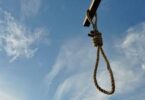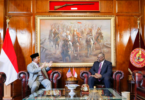Monitoring Desk
CAIRO: Prime Minister of Libya’s Government of National Accord (GNA) sitting in Tripoli Fayez al-Sarraj and Commander of the Libyan National Army (LNA) Field Marshal Khalifa Haftar have confirmed that they will take part the international conference for settlement in the country, scheduled to be held in Berlin on January 19. Sarraj announced the decision at a meeting with political and military leaders backing him late on Wednesday, the Tripoli cabinet said via its Facebook page.
“We have signed the ceasefire statement by the Turkish and Russian side, and we have seen in this initiative a first step towards the resolution of the crisis and the achievement of security and stability,” Sarraj told the meeting. “We connected with all the political and military forces and there was collective support for this step.”
The GNA leader noted that “the attacker”, referring to Haftar, “has chosen not to sign and request a deadline for procrastination is part of the attempts to blow up the Berlin conference before it took place, a way it has already taken towards the Ghadames conference.” “We will attend Berlin and deliver our message,” the politician underlined, mentioning three key areas to be debated in the conference – military, political and economic – the statement says.
Moreover, Sarraj believes that “the positive Turkish-Russian role that upset the Europeans.” “It was the Europeans who gave them [Moscow and Ankara] this role, as European countries had not taken a positive practical attitude towards what was going on in Libya for nine months,” he underlined.
In turn, the LNA commander gave assurances that he would attend the conference to German Foreign Minister Heiko Maas who arrived to Benghazi for talks with the field marshal on Thursday, the Al-Hadath TV reported.
On January 12, a ceasefire in Libya proposed by the Russian and Turkish Presidents Vladimir Putin and Recep Tayyip Erdogan as part of a larger initiative to achieve peace in the country entered into force at midnight. The ceasefire’s objective is to stop hostilities between the Libyan National Army (LNA) led by Field Marshal Khalifa Haftar and Fayez al-Sarraj’s Government of National Accord (G-NA) sitting in Tripoli. On January 13, representatives of the parties to the conflict arrived in Moscow for talks after which GNA envoys signed the ceasefire agreement.
Haftar took a pause to study the agreement. However, later he left Moscow without putting his signature to the document, claiming that he needed time to discuss the agreements reached with leaders of tribes that support him. In the early hours of January 14, armed clashes re-erupted in south Tripoli – the target of a decisive offensive declared by Haftar in December. The LNA issued a statement declaring “readiness and determination to achieve victory.”
To break the deadlock, Germany is planning to hold an international conference on the Libyan settlement in Berlin on January 19, officially inviting Haftar and Sarraj to attend it earlier. Representatives and leaders of Russia, Algeria, the United Kingdom, Egypt, the UAE, China, the Unites States, Turkey and France are also expected to take part in it. (TASS)






